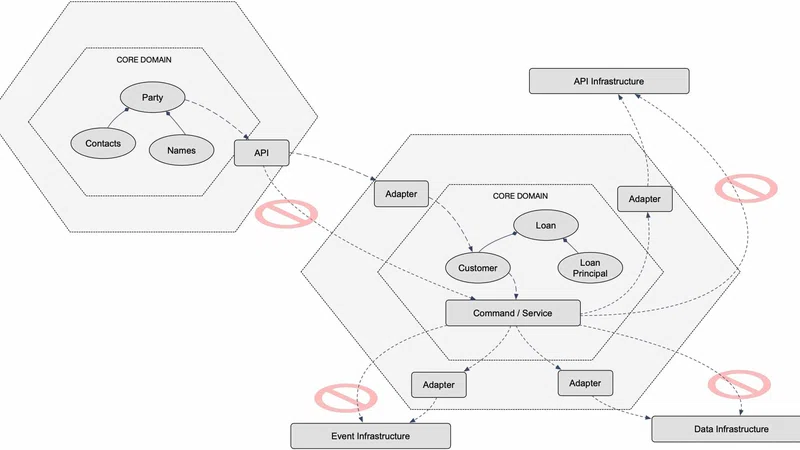Buzzwords have emerged throughout the first quarter of 2021 bringing FinTech once more to become the highlight industry of the season. Open Banking services, API providers, Cryptocurrency exchanges, Payments solutions, there has been a mix of everything in between funding rounds and partnerships. Yet there is always a trend layering the aforementioned elements: “Widening the Customer Base”.
This trend comes in different approaches depending on the function of the startup or incumbent player in the market:
- From a banking perspective: it’s about channel diversification and niche targeting
- From a payment perspective: it’s about tapping into unserved markets for financial inclusion
- From a digital currency perspective: it’s about the ease of trading and portfolio diversification
While the target market may differ within the emerging FinTech players, everyone is asking the same question:
- How could these technological advancements be leveraged to the company’s vision and mission best?
We explore in this reading key events disrupting the business model from both emerging startups and key incumbent members of the industry.
SHAPING THE FINANCIAL SERVICES MODEL
Industry companies do not rely anymore on providing one standardized product, but instead to offer a multitude of services ending the one-size-fits-all model. This is what Rapyd is doing – A UK-based FinTech-as-a-Service API Platform Provider – which had one the highest funding rounds of $300M in Series D [week 2] to scale up its payment/banking/fraud protection services making it to a $2.5BN valuation.
Challenger Banks are on the rise and the UK is leading the European movement as Starling Bank raised arguably the most noticeable funding round of £272M in Series D enabling it to achieve Unicorn Status [week 10] to then announce the issuance of Mastercard debit cards made of recycled plastic in [week 11].
Startups and Incumbents are tapping into financial and banking services through various initiatives based on:
- The sub-industry targeted
- The technology leveraged
- The market tapped-in
TrueLayer – A UK-Based Open Banking API Provider – jumped into the payment sub-industry wagon by launching its Payment-as-a-Service product for customer account-to-account payouts and deposits [week 4]. Token – A UK-Based Open Banking Payment Platform – on the other hand, has raised $15M in Series B funding round [week 4] to scale up its account-to-account payout as well with a focus on:
- Merchants
- PSPs
- Banking-as-a-Service Platforms
Looking at anticipated IPOs, one that caught the industry’s attention is from Trustly – Swedish-Based Open Banking Payment Method Provider – which on [week 4] set an eye on a €9BN valuation on IPO as it saw its business rise through the pandemic with increasing processed online transactions. Ikigai – Another UK-Based FinTech – has made a debut launch in [week 11] to combine digital banking and wealth management services with a vision to emphasize financial literacy and self-care into personal finance. More on unique service offerings bring Diem – UK-based FinTech Banking Service Provider – which has raised $5.5M in seed funding round [week 11] to fuel the circular economy by “allowing users to sell their unwanted items to the company”.
Underserved customers are also on the rise within the FinTech map, whether it is from an individual perspective, sole entrepreneur, Micro SMEs, or Small SMEs, startups are continuously digitalizing the lending sector. FinTern – A UK-based Consumer Lending Provider – is a prime example for in [week 10] launched “a lending decision credit technology service for consumer loans based on profitability”. Alma – A French-based Fintech Installment Provider – is another example that raised €49M in Series B funding round [week 4] and targets retailers in supporting their business through merchant and consumer installments and deferred payment solutions. In Sweden, we find Billhop AB – A Payment Service Provider – which raised $4M in Series A funding round [week 7] to further enhance its services for which consists of “enabling businesses and individuals to pay their invoices by credit card”.
With rising payment solutions the UK didn’t miss on the BNPL movement for Butter – A UK-based BNPL Provider – has raised £15.8M in a venture funding round [week 13] “to scale up its operations across the region”. Startup card providers continue to make their mark as well, and it is the case with NumberX – Austrian-based Mastercard Provider – which, through their app-based Mastercard launch [week 12], is promising to “deliver its customers neobanks innovations through monthly spending limit, cashless payments, and cash withdrawals”.
Soon to be the largest generational demographic according to recent studies, Gen Z will surpass baby boomers, and millennials and FinTechs are already shifting their solutions toward the rising generation. In France Vybe – Teenage Neobank – has made sensations when 21 years old Co-Founder Canelle Chokron raised €2.2M [week 7] to scale up its operations across its teenagers market. Pockid – German Neobank Firm – has also made a move by partnering with Mastercard [week 11] to launch its “digital banking product aimed at young people”. Kids and Teens are not the only targeted niche market, ethnicity focused based FinTech solutions have also seen the day and Atmen – UK-based Banking Services Provider is one of them – which has set to launch the first “Black British-led banking startup in March 2021 [week 8].
On a more geographical note, Revolut – a UK-based challenger bank – is taking its service outside of Europe by applying to a “U.S. Banking License” with its first draft submission made in [week 12] with a mission to provide its services to the U.S. SMEs landscape. One week later [week 13] it has announced that its new product “Revolut Business” will be launched in all 50 states. Speaking of UK Based Challenger Banks, in [week 9] UK ‘Tech Zero’ climate taskforce was launched with many UK FinTechs among the movement including Revolut, Starling, and Wise to tackle climate change. German Challenger, N26, on the other hand, has specified stock exchange plans on [week 12] which its “Financial Holding” License application in anticipation of its IPO vision.
Incumbent Players are not just watching the FinTech evolution but are also acting to spur their own innovative solutions. Starting with the partnership of Barclays and Smart Pension – UK-Based Pension and Retirement Technology Business - to “promote the latter’s services to its business banking clients” [week 5]. Lloyds Bank on the other hand has set up its “new digital transformation strategy” with growing FinTech partnerships for its dynamic online customer base and a planned investment of £900M to support its internal change [week 9]. HSBC is also taking on the chase by leveraging on Blockchain with the firm being the “first bank to use R3’s Corda Enterprise Blockchain Network” on Google Cloud [week 9]. The giant player has then launched its mobile business bank for UK SMEs [week 12]. Jumping to Spain we find BBVA being the first bank to “deploy Google Cloud’s security analytics platform Chronicle” to prevent cyberattacks [week 8]. Santander has also made major headlines two weeks in a row by first launching a saving and investment calculator on [week 11] followed by a decision to convert all of its 30M payment cards across Europe to “eco-friendly recycled plastic within the next four years” [week 12]. Governments are also taking part in the FinTech movement. A first noticeable mention would go to the UK Government’s announcement to prepare a “fast-track FinTech visa plan to attract top Tech talents” [week 8]. The German Central Bank on the other side has announced successful tests on DLT central bank money securities settlement implementations [week 12]. TaxTech is also making its way in with Her majesty’s Revenue and Customs (HMRC) – The UK Tax Authority – providing a £3M Contract [week 5] to Ecospend – UK-based Open Banking Platform – with an aim to ease the payment submissions for taxpayers through direct bank account submission. Ireland is also on the map with the Bank of Ireland closing a third of its branch network as its “envision more digital banking use” [week 9].
Other worthwhile mentioning news outside of the already mentioned scope includes wealth and asset management solutions, financial wellbeing, and other anticipated IPOs. Starting first with Aon – UK-based Financial Risk Mitigation – and Moneyhub – UK-based Open Banking / Open Finance Solution Provider – to partner and implement “a financial wellbeing app for its employees [week 2]. Another interesting partnership concerns Azimut Group – Italian Asset Management Company – and Sygnum Bank – Swiss FinTech Digital Asset Bank – to “tokenize portfolio loans to Italian SMEs [week 12]. In Netherland, Finch Capital – VC FinTech Oriented – has closed a $150m FinTech fund on “acquiring minority stakes in scale-up companies” [week 6]. A look into IPOs with Wise (Formerly TransferWise) - Online Money Transfer Provider – has enlisted Goldman Sachs and Morgan Stanley to its IPO with a predicted $5BN valuation [week 3]. Ending the section with an honorable funding round mention of WealtArc – Swiss FinTech Wealth Management and Solution Provider – with a $4M Seed round [week 5] to being on a mission to “become the most comprehensive wealth management information hub in Switzerland and beyond”. From another side on the retail industry Carrefour – French Multinational Retail Corporation – is using blockchain within its internal chain to trace textile products [week 11] which opens opportunities and speculation on the diverse uses of DLT technologies across industries making it a versatile tool to use.
IN CONCLUSION
While consumer banking accounts are spurring innovation, business accounts don’t get the same attention as SMEs are still struggling to launch their businesses from the initial signup to the underlying onboard with KYC (Know-your-Customer) and KYB (Know-your-business) being the hardest to implement for banking purposes.
A QUICK CRYPTO LOOK
Crypto wallets have gained a lot of attraction and success within the European outlook. With Bitcoin surging through the first period of the year, Blockchain.com – UK-based Cryptocurrency Blockchain Explorer Service, Wallet, and Exchange - has experienced major funding round with a $120 Unknown Series Venture round [week 7] to scale up with operation and leveraging on the Bitcoin Bull run. The funding round continued with on [week 12] a $300M Series C funding round to take it into a $5.2BN Valuation. Another distinguished round comes from BitPanda – Austrian-based Retail Broker for Cryptocurrency Exchange Provider – which has raised $170M [week 11] in Series B funding round to become Austria’s first FinTech Unicorn, 8 weeks prior to that [week 3] it has announced its new Visa debit card issuance combining all assets into one card in real-time. Social Media trading is another growing channel and Bottlepay – a UK-based Payment Platform – is betting on it by enabling digital bitcoin exchange via Twitter [week 11]. Far from crypto wallets in the automotive industry, Fiat has announced that it would offer free cryptocoins to drivers who go green [week 12], which only adds to the various use of cryptocurrencies made by companies as incentive methods for its customer base.













